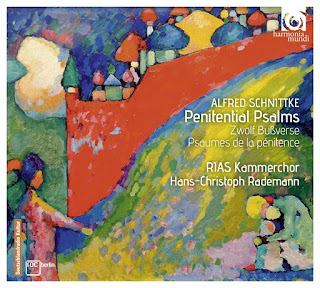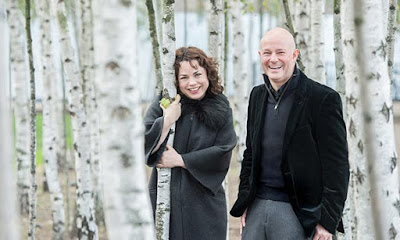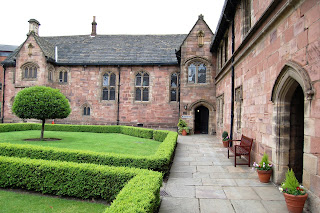Monteverdi Messa a quattro voci e salmi of 1650; The Sixteen, Harry Christophers; Coro
Reviewed by Robert Hugill on Apr 24 2016
Star rating:
Highly engaging performances of Monteverdi's last published collection
Having explored Monteverdi's Vespers of 1610 and Selva morale e Spirituale on disc, Harry Christophers and The Sixteen now turn their attention to the final collection of Monteverdi's music. Messa a quattro voci e salmi of 1650 Volume 1 on the Coro label explores the music of the final, posthumous collection of Monteverdi's music, published in 1650. We get an attractive selection of works, Monteverdi's Dixit Dominus (Primo) a 8 SV191, Confitebor tibi Domine (secondo) due voci SV194, Lauda Jerusalem a 3 SV202, Laetatus sum a 5 SV199, Nisi Dominus a 3 SV200, Laudate pueri a 5 SV196 Laetaniae della Beata Vergine a 6 SV2014, Beatus vir a 7 SV195, and the Magnificat by Francesco Cavalli which concluded the collection.
Reviewed by Robert Hugill on Apr 24 2016
Star rating:
Highly engaging performances of Monteverdi's last published collection
Having explored Monteverdi's Vespers of 1610 and Selva morale e Spirituale on disc, Harry Christophers and The Sixteen now turn their attention to the final collection of Monteverdi's music. Messa a quattro voci e salmi of 1650 Volume 1 on the Coro label explores the music of the final, posthumous collection of Monteverdi's music, published in 1650. We get an attractive selection of works, Monteverdi's Dixit Dominus (Primo) a 8 SV191, Confitebor tibi Domine (secondo) due voci SV194, Lauda Jerusalem a 3 SV202, Laetatus sum a 5 SV199, Nisi Dominus a 3 SV200, Laudate pueri a 5 SV196 Laetaniae della Beata Vergine a 6 SV2014, Beatus vir a 7 SV195, and the Magnificat by Francesco Cavalli which concluded the collection.
Ensembles like The Sixteen expect their choristers to be able to step out from the ensemble and take solo roles, music such as these motets by Monteverdi expect a high degree of flexibility from the singers. Individual roles can be solo, without the 19th century sense of a group of soloists separate from the choir. Here Harry Christophers uses his 18 singers with a great degree of flexibility so that we get items sung by two or by three voices, a double choir motet sung by just eight voices as well as the full choral effect of the 18 singers, all supported by two violins (Simon Jones and Andrea Jones), cello (Joseph Crouch), chitarrone (David Miller), harp (Frances Kelly) and organ/harpsichord (Alastair Ross).
But what really counts on this disc is not so much the numbers, as the fact that all concerned perform with a sense of engaging vitality with a vibrantly communicative sense of the words. In his introduction in the CD booklet Harry Christophers talks about recitar contando (speak through singing) and all the works on the disc have the right sense of rhythmic vitality and exhilaration.


































%20Ali%20Wright.jpg)

%20Ali%20Wright.jpg)





